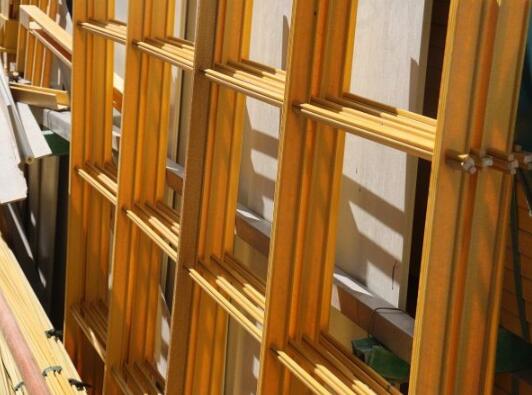What Is Pultruded Fiberglass Grating?
Pultruded fiberglass grating is a type of grating material made from fiberglass-reinforced plastic (FRP) through a process known as pultrusion. This grating is widely used in industrial, commercial, and even residential applications due to its strength, durability, and resistance to various environmental factors. In this article, we will explore what pultruded fiberglass grating is, its key features, benefits, and common applications.

The Pultrusion Process
Pultruded fiberglass grating is created through a continuous manufacturing process called pultrusion. During this process, continuous fiberglass strands or rovings are pulled through a resin bath and then passed through a heated die. The die shapes the material into the desired cross-sectional profile while the resin cures, resulting in a solid, rigid, and high-strength product.
This process allows for the production of grating with uniform cross-sectional shapes and consistent quality. Pultrusion is highly efficient and is ideal for producing large quantities of grating with precise dimensions and properties. The resulting pultruded grating is lightweight yet incredibly strong, making it suitable for a wide range of applications.
Features of Pultruded Fiberglass Grating
Pultruded fiberglass grating offers several distinct features that make it a popular choice in various industries. One of its primary features is its high strength-to-weight ratio. Despite being lightweight, pultruded fiberglass grating is strong enough to support heavy loads, making it a reliable alternative to traditional metal grating.
Another key feature of pultruded fiberglass grating is its corrosion resistance. Unlike metal grating, which can rust or corrode when exposed to moisture, chemicals, or saltwater, fiberglass grating is inherently resistant to corrosion. This makes it an ideal choice for environments where exposure to harsh chemicals, moisture, or extreme weather conditions is common.
Additionally, pultruded fiberglass grating is non-conductive, making it a safer option for applications where electrical insulation is important. The material is also fire-retardant, providing an extra layer of safety in environments where fire hazards are a concern.
Benefits of Pultruded Fiberglass Grating
The benefits of pultruded fiberglass grating are numerous, contributing to its widespread use across various industries. One of the most significant benefits is its durability. Pultruded grating is designed to withstand harsh conditions, including exposure to chemicals, UV radiation, and heavy foot traffic, without deteriorating over time. This long lifespan translates to lower maintenance costs and fewer replacements, making it a cost-effective solution in the long run.
The lightweight nature of pultruded fiberglass grating also offers logistical advantages. It is easier to transport, handle, and install compared to heavier materials like steel or aluminum. This can lead to reduced labor costs and faster installation times, particularly in large-scale projects.
Another benefit is the versatility of pultruded fiberglass grating. It can be manufactured in various shapes, sizes, and thicknesses to meet specific project requirements. Additionally, it can be customized with different surface finishes, such as grit for improved slip resistance, making it suitable for both indoor and outdoor use.
Common Applications of Pultruded Fiberglass Grating
Pultruded fiberglass grating is used in a wide range of applications, thanks to its combination of strength, durability, and corrosion resistance. One of the most common uses is in industrial flooring and walkways, particularly in chemical plants, oil refineries, and wastewater treatment facilities. The grating provides a safe and stable walking surface while resisting the corrosive effects of chemicals and moisture.
It is also used in marine environments, such as on docks, piers, and offshore platforms, where exposure to saltwater and harsh weather conditions can quickly degrade other materials. Pultruded fiberglass grating's corrosion resistance makes it an ideal choice for these challenging environments.
In addition to industrial and marine applications, pultruded fiberglass grating is used in architectural applications, such as stair treads, handrails, and decorative panels. Its lightweight and customizable nature allow for creative and functional design solutions in both commercial and residential settings.
Conclusion
Pultruded fiberglass grating is a versatile, durable, and cost-effective material that offers numerous advantages over traditional grating options. Its resistance to corrosion, lightweight properties, and long lifespan make it a preferred choice for a wide range of applications, from industrial flooring to architectural design.
If you are considering pultruded fiberglass grating for your project or need more information about sourcing this material, it is important to work with a reliable supplier. For further details or to discuss your specific needs, please don't hesitate to contact us.


